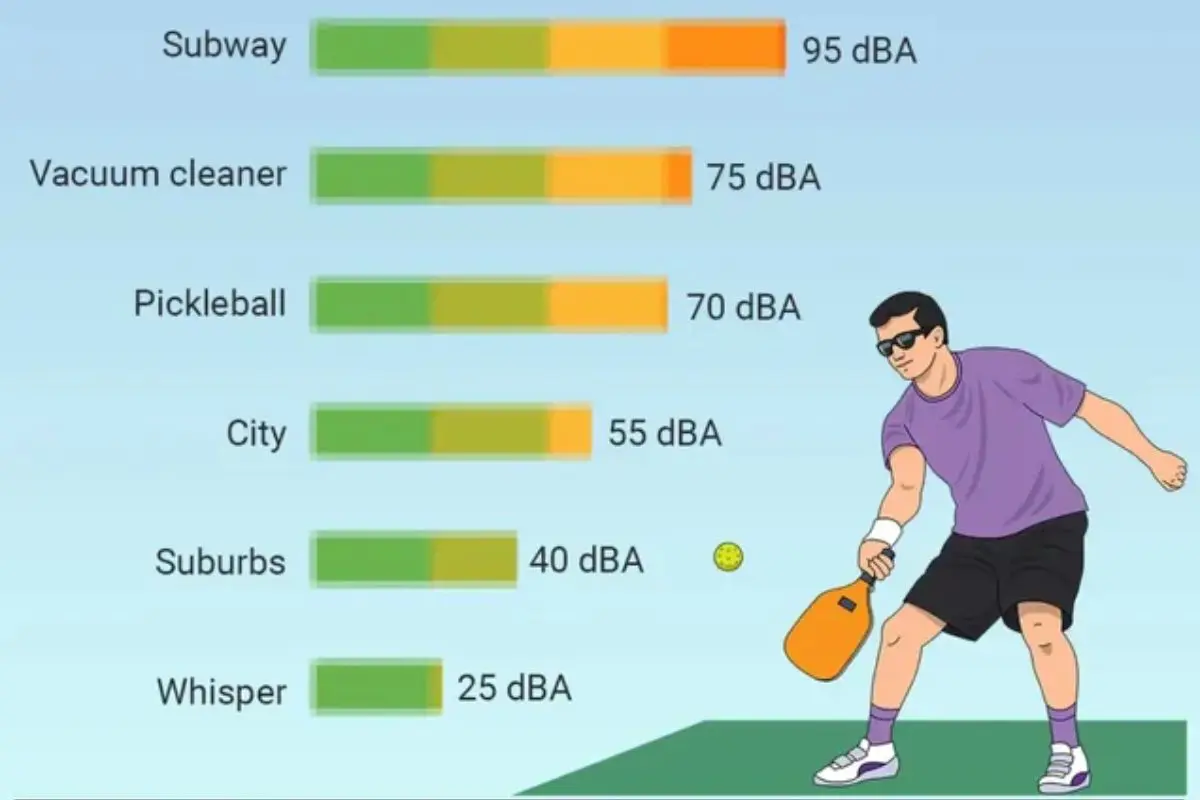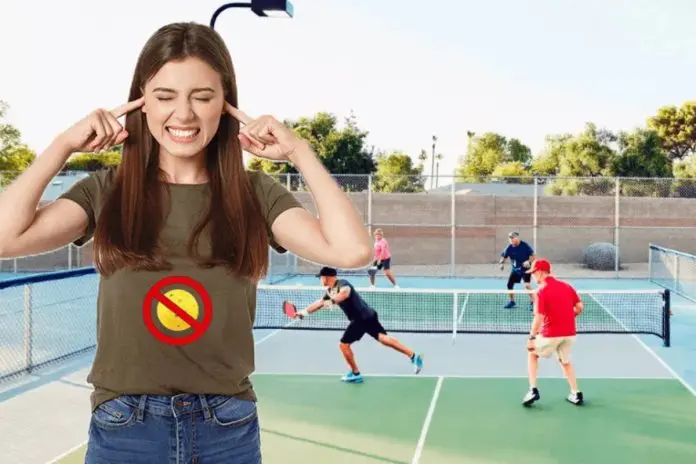The Impact of Pickleball Noise: In the sun-soaked suburbs of Los Angeles, where palm trees sway gently and the hum of daily life drifts lazily by, a storm is brewing. And it’s not about the heat. It’s about the piercing, relentless noise of pickleball.
For many, pickleball is a delightful pastime—a fusion of tennis, badminton, and ping-pong that offers hours of friendly competition and exercise. But for residents living near pickleball courts, the sport’s ceaseless noise is a serious, often debilitating problem. It’s a clash of perceptions: for enthusiasts, it’s a game; for others, it’s a disruptive force.
Meet Nalini Lasiewicz: Advocate for the Silent Majority
Nalini Lasiewicz, a resident of a Los Angeles suburb, has become an unexpected voice in this clash. Her journey began during the COVID-19 lockdown, a time when the world slowed down, but for some, the noise of pickleball picked up.
It all started with a seemingly simple proposal: converting a tennis court into a dual-use sports facility. To pickleball enthusiasts, it was a golden opportunity. To nearby residents, it was a potential nightmare.
“Pickleball Ambassadors and players from all over the region lobbied our small city government to pilot and test out a conversion from tennis to a dual-use sports court.” – (Lasiewicz)
The proposed site was disturbingly close to homes—some as near as 23 feet. Concerns about noise, traffic, and parking soon swirled into a whirlwind of local dissent.
Lasiewicz, who holds a degree in organizational leadership, stepped up to help her friends who lived in the vicinity. With their funds, they hired a sound engineer to conduct a noise impact study. The results were clear: the proposed location was unsuitable for outdoor pickleball courts due to its proximity to homes. Despite this, the City Council pressed forward with the conversion.
“It was clear they had already made up their minds to go ahead. The Mayor didn’t even attend the hearing. The four members voted to reject our appeal, and the conversion went forward.” – (Nalini)
This wasn’t an isolated incident. Lasiewicz now manages a Facebook group created by Rob Mastroianni, who was forced to sell his home due to pickleball noise. The group supports others who find themselves similarly trapped. Mastroianni’s story was featured on ABC News, shedding light on a problem many are too afraid to voice.
A Call for Understanding
In a recent YouTube interview, Lasiewicz spoke with Will and Britness from Owensboro, Kentucky. Their story mirrors many others: initially enthusiastic about pickleball, they found themselves overwhelmed by the noise once the courts were built.
“I’m kind of ashamed to talk about it, it seems like such a silly thing. I can’t even describe the amount of stress it’s put on me.” – (Will)
The video captures their distressing reality: a constant barrage of pings and chatter that disrupts their peace.
“I would like to say to them, I understand your situation, and I hope you understand mine as well. I don’t have anything against pickleball. I just hope they do it in the right location where they aren’t forcing people to listen to it for hours at a time. Our world would be a better place if more people played pickleball.” – (Will)
The Pain Behind the Pings
The impact of pickleball noise extends beyond mere irritation. According to the National Institute on Deafness and Other Communication Disorders (NIDCD), long-term exposure to sounds at or above 85 dBA can cause hearing loss. Each pickleball strike registers around 85 dBA from 100 feet away—equivalent to the noise of a power tool or an alarm clock.
When these sounds occur persistently—600 to 900 times an hour from multiple courts—the cumulative effect is overwhelming. Residents near such courts endure the auditory equivalent of an alarm ringing every 0.8 seconds for hours on end.
This constant barrage can lead to what psychologists call “Learned Helplessness,” a condition where individuals feel powerless and trapped in a negative situation. Symptoms can include depression, cognitive issues, and weakened immune systems.
Solutions to Pickleball Noise
While some solutions, like noise-dampening walls or quieter paddles, have been proposed, they often fall short.
“There is no way to blanket an open court. The sound ricochets through the air, much like a firecracker when it explodes in a valley.” – (Nalini)
Manufacturers have introduced quieter paddles and foam balls, but their effectiveness remains questionable. What’s needed are practical demonstrations and feedback from affected residents to ensure that any noise reduction measures genuinely address the problem.
Moving Forward
“In order to change, it’s a long-term process that begins with educating communities and players themselves. We have to help them understand that this game is hurting other people.” – (Nalini)
It’s time for pickleball players and enthusiasts to acknowledge that noise is a real issue for many communities. By understanding and addressing these concerns, we can work together to find solutions that allow the sport to thrive without compromising the peace and well-being of our neighbors.
Your Call to Action
If this issue resonates with you, consider taking these steps:
- Listen to those affected by pickleball noise and understand their perspective.
- Demand for noise-reducing solutions and responsible court placement.
- Empathize with your neighbors and work towards finding common ground.
- Support measures that ensure pickleball courts are located at a safe distance from residential areas.
The future of pickleball depends on finding a balance between enjoyment and respect for the communities in which we play. Let’s work together to create a solution that benefits everyone involved.

News in Brief: The Impact of Pickleball Noise
In Los Angeles suburbs, the growing popularity of pickleball has sparked tension due to its disruptive noise. Nalini Lasiewicz, a local advocate, emerged as a key figure in this debate after opposing the conversion of a tennis court into a pickleball facility near homes. Despite her efforts and a noise impact study indicating the courts would be too close to residences, the City Council proceeded with the plan.
Lasiewicz now leads a Facebook group supporting those affected by pickleball noise, highlighting its impact on residents’ well-being. Persistent noise from pickleball can lead to hearing loss and psychological stress, comparable to constant alarm sounds. While quieter paddles and foam balls have been proposed, solutions remain inadequate. Lasiewicz urges the pickleball community to recognize and address these issues by demanding better court placement and noise reduction measures, aiming for a balance that respects all the players and neighbors.
Also Read: Indoor Pickleball Club at Newtown Shopping Center is Set to Open
